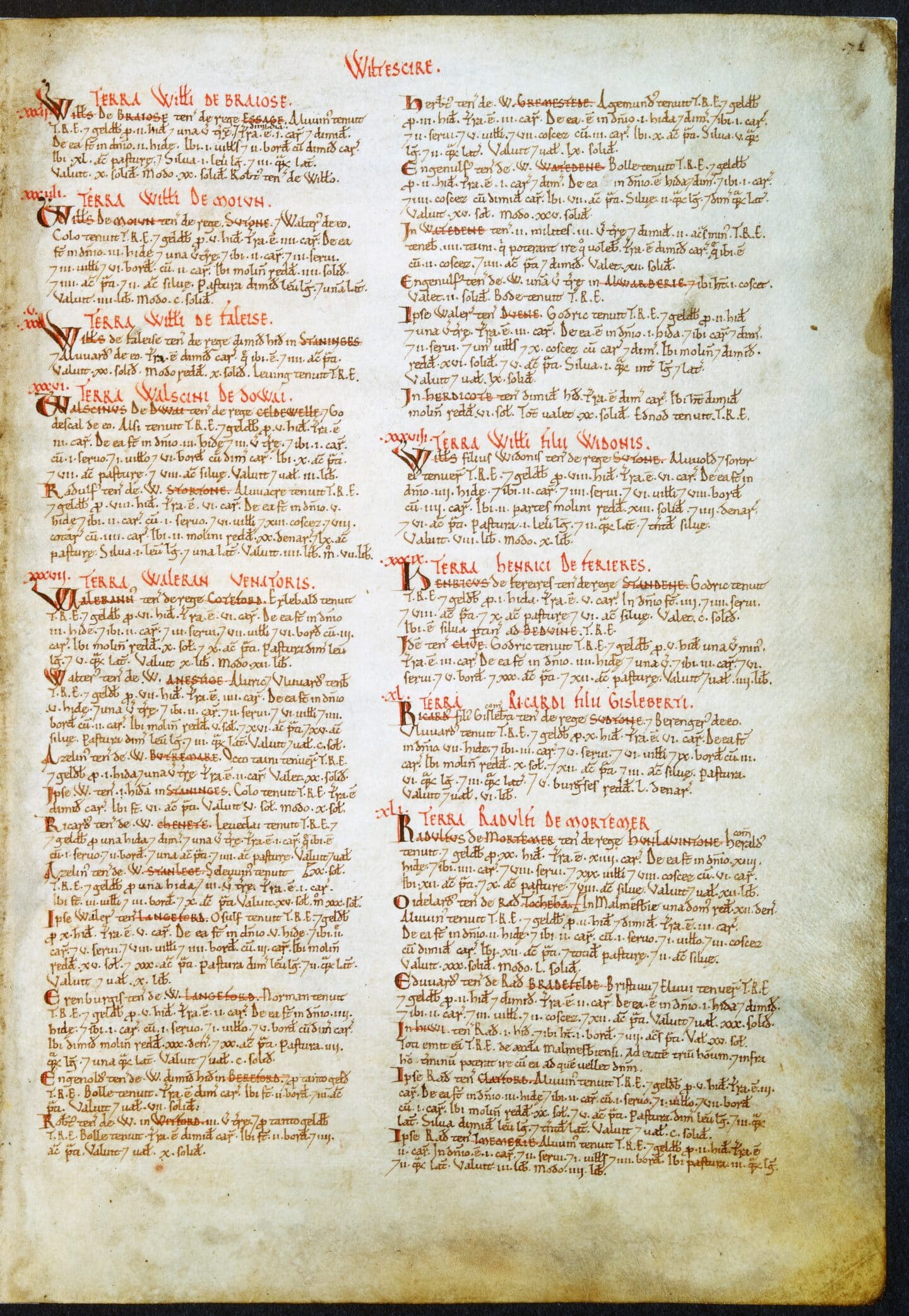Latest News
Prof Stephen Baxter reveals author of William the Conqueror’s ‘Medieval Big Data’ project
2 July 2025

Professor Stephen Baxter has co-authored a ground-breaking new book, offering a fresh interpretation of William the Conqueror’s famous survey of England and the making -- and authorship -- of Domesday Book.
Making Domesday: Intelligent Power in Conquered England (Oxford University Press, 2025) is co-authored with Professor Julia Crick (Professor of Palaeography and Manuscript Studies at King’s College London) and Dr C. P. Lewis (Fellow at the Institute of Historical Research, University of London).
The book grew out of an Arts and Humanities Research Council (AHRC)-funded collaborative research project, led by scholars based at King's College London and the University of Oxford, which brought together a team of specialist scholars, deploying a range of modern techniques to the study of Exon Domesday (Exeter Cathedral Library MS 3500), the earliest surviving manuscript of the survey, written in 1086.
Making Domesday argues that the Domesday survey was brilliantly conceived and executed with stunning efficiency. Historians have long suspected that the goal was to assemble all the information William the Conqueror’s government needed to generate greater revenues for the king. This study contends that the survey was even more ambitious and complex than scholars have dared to believe. It demonstrates that the Conqueror’s revenues derived from several different sources—royal estates, a land tax, the profits of justice and direct taxation of major landholders. To administer them more efficiently, the king’s administrators needed vast quantities of data organised in particular ways for specific purposes.
And that is what the survey delivered—at astonishing pace. In seven months, between Christmas 1085 and 1 August 1086, the Conqueror’s regime harvested and manipulated data on a massive scale, capturing information in one format before refining and reorganising it in structured ways for various purposes. During the following year, Domesday Book itself was written, supplying the king’s regime with another carefully designed and efficient tool of fiscal extortion. This, the authors argue, was one of the most spectacular feats of government anywhere in the medieval world.
Prof Baxter said,
“One of the points that emerges forcefully from this study is just how clever Domesday’s creators were. Their survey exudes intelligence. It was carefully planned, drawing on ancient precedents for taking large-scale surveys, and made rational use of existing systems of government; but it was also implemented with breathtaking efficiency and was conceptually innovative, foreshadowing the profitable exploitation of big data in the modern world, using technologies no more complex than pen, parchment and human interaction. Domesday was the product of raw, not artificial intelligence.”
In the second part of the book, Prof Baxter contends that the person who wrote Great Domesday Book can now be named for the first time. This discovery builds on recent research by scholars outside the team who have identified his distinctive hand in other manuscripts, allowing them to trace his career as he moved from Rouen to Winchester just after the Norman Conquest. Making Domesday develops that profile, proposing that the scribe was Gerard, William the Conqueror’s last chancellor, who went on to become bishop of Hereford and archbishop of York.
Domesday Book is Britain’s oldest surviving public record and is of profound historical significance, critical for many fields of inquiry. By offering a fresh interpretation of how, why and by whom it was made, the authors hope to open new pathways for interpreting the regime behind the survey and the society which it set out to describe, master and transform.
About Prof Baxter

Professor Stephen Baxter read history at Wadham College, Oxford, and began his career in strategy consulting and investment banking before returning to complete a DPhil at Christ Church. He has held academic posts at Magdalen College, King’s College London, and St Peter’s College, Oxford, where he became Professor of Medieval History in 2020. His research focuses on politics, government, and society in medieval Britain and Europe.
---
Image of Domesday Book courtesy of Professor John Palmer, George Slater and opendomesday.org.